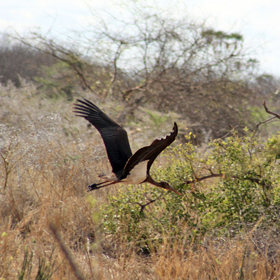
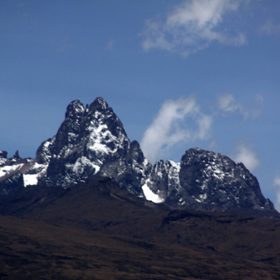
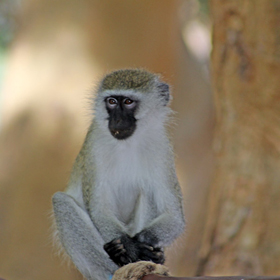
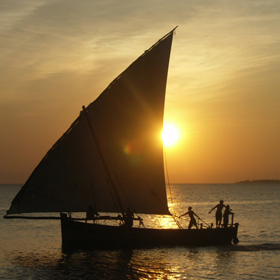
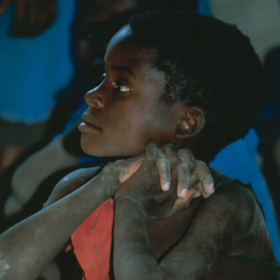
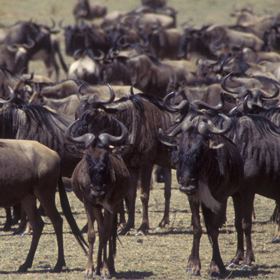
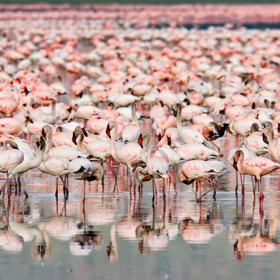
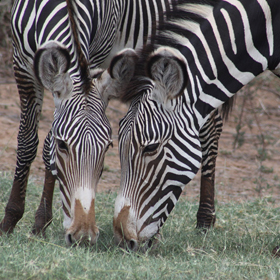
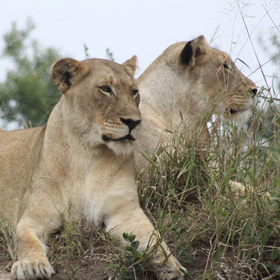
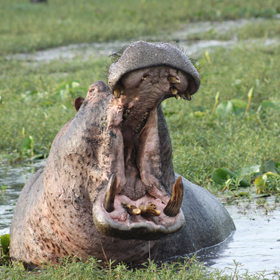

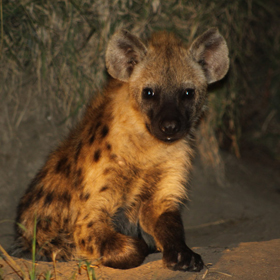
GENERAL TRAVEL TIPS
Our general travel tips would apply to travel to most destinations in Africa. We try to keep them up to date but if you are travelling to Africa, you should check with your travel company as well as your country's travel advisories for the destinations you are travelling to.
Health and illness
DISCLAIMER: THESE HEALTH TIPS ARE FOR PLANNING AND INFORMATION ONLY. WE STRONGLY RECOMMEND YOU DISCUSS THE DETAILS OF YOUR ITINERARY WITH YOUR DOCTOR BEFORE TRAVEL. IN SOME CASES, SUCH AS CLIMBING MOUNT KILIMANJARO, YOUR TRAVEL COMPANY MAY REQUIRE A CERTIFICATE OF FITNESS SIGNED BY A PHYSICIAN.
During your safari, there are some dangers that you should be aware of. Many of them are the same dangers as any travel situation however some are more specific due to the presence of wildlife that may pose a risk if common sense precautions are not taken.
It is important to know that there are good medical facilities available in Nairobi (both Nairobi and Aga Khan Hospital have exceptional services) and in other major cities throughout Africa. Smaller towns and even villages have competent medical staff to take care of first needs and emergency treatment. We always recommend that travellers purchase medical evacuation insurance such as Flying Doctors. These policies cost around $50.00 per person and are well worth the benefits.
During your safari, there are some dangers that you should be aware of. Many of them are the same dangers as any travel situation however some are more specific due to the presence of wildlife that may pose a risk if common sense precautions are not taken.
It is important to know that there are good medical facilities available in Nairobi (both Nairobi and Aga Khan Hospital have exceptional services) and in other major cities throughout Africa. Smaller towns and even villages have competent medical staff to take care of first needs and emergency treatment. We always recommend that travellers purchase medical evacuation insurance such as Flying Doctors. These policies cost around $50.00 per person and are well worth the benefits.
Jet Lag
There are a lot of ways people avoid jet lag; but the trip to Africa is long and generally crosses several time zones (unless you are arriving from Moscow). People traveling from North America might consider breaking their travel in Europe. At the minimum, you might take advantage of shower facilities offered at most international airports.
During the flight, avoid alcoholic beverages, but drink plenty of water and juice. Lip balm and skin moisturiser can help, as can the little foil wrapped moist towels.
On arrival, try to get into the sleep cycle of your destination. If you arrive in the morning, try to stay awake throughout the day. If you do need to sleep, try to take as short a nap as possible so that you will find it easier to sleep in the evening after dinner.
Walk around and get some exercise. This will help you body adjust after a long time sitting in one position.
During the flight, avoid alcoholic beverages, but drink plenty of water and juice. Lip balm and skin moisturiser can help, as can the little foil wrapped moist towels.
On arrival, try to get into the sleep cycle of your destination. If you arrive in the morning, try to stay awake throughout the day. If you do need to sleep, try to take as short a nap as possible so that you will find it easier to sleep in the evening after dinner.
Walk around and get some exercise. This will help you body adjust after a long time sitting in one position.
The Sun
Do not underestimate the power of the equatorial sun. It is very serious. Bring a hat that will provide protection, sunglasses and sun screen.
Many safari vehicles provide shade from the sun, but some do not and sometimes, even with the shade of a pop-up roof, you may not be fully shaded. Wearing light coloured, loose fitting long sleeve shirts is also recommended.
When at the beach, it is extremely important to keep the strength of the sun in mind. Even on cloudy days, effects of the sun can cause burns.
Many safari vehicles provide shade from the sun, but some do not and sometimes, even with the shade of a pop-up roof, you may not be fully shaded. Wearing light coloured, loose fitting long sleeve shirts is also recommended.
When at the beach, it is extremely important to keep the strength of the sun in mind. Even on cloudy days, effects of the sun can cause burns.
Food & Drinks
Food
There have been travel guides written that suggest you avoid everything from meats, fish and shellfish to fruit, vegetables and salads. This is no longer the case. When traveling with a reputable company, your trip includes only lodges and camping services that have passed very strict hygienic inspection on a frequent basis. Your guide may recommend places to avoid should you wish to venture on your own in towns. Care should be taken in parts of Zanzibar where you will have a choice of places to dine at.
You can request special meals if you have dietary requirements. These should be mentioned in advance to ensure preparations can be made in remote areas. If you have any food allergies, these should be made known so that your safari team can ensure your diet will avoid these foods.
Water
Bottled water is provided (either free or for sale) at all lodges and often in your vehicle. Though the tap water from lodges is generally filtered, boiled or both, the differences in minerals might cause discomfort and should be avoided. It is important, however, that you drink a lot of water and other fluids to avoid dehydration in the warmer climate.
Other Drinks
There is a large variety of locally bottled soft drinks and beer available. These products are generally supervised under international standards (i.e. Coca Cola) and should be quite safe. When in doubt, ask you guide. Wine drinkers might enjoy some of the exceptional wines from South Africa. Chateau Libertas is at the top of the recommendation list. Some spirits may be difficult to find and are often expensive. You might consider traveling with your own supply.
Important: When traveling on public transportation, do not accept food or drink offers from ‘friendly strangers’. There have been incidents where these gifts have been drugged that the traveller has woken several hours later, less all belongings
There have been travel guides written that suggest you avoid everything from meats, fish and shellfish to fruit, vegetables and salads. This is no longer the case. When traveling with a reputable company, your trip includes only lodges and camping services that have passed very strict hygienic inspection on a frequent basis. Your guide may recommend places to avoid should you wish to venture on your own in towns. Care should be taken in parts of Zanzibar where you will have a choice of places to dine at.
You can request special meals if you have dietary requirements. These should be mentioned in advance to ensure preparations can be made in remote areas. If you have any food allergies, these should be made known so that your safari team can ensure your diet will avoid these foods.
Water
Bottled water is provided (either free or for sale) at all lodges and often in your vehicle. Though the tap water from lodges is generally filtered, boiled or both, the differences in minerals might cause discomfort and should be avoided. It is important, however, that you drink a lot of water and other fluids to avoid dehydration in the warmer climate.
Other Drinks
There is a large variety of locally bottled soft drinks and beer available. These products are generally supervised under international standards (i.e. Coca Cola) and should be quite safe. When in doubt, ask you guide. Wine drinkers might enjoy some of the exceptional wines from South Africa. Chateau Libertas is at the top of the recommendation list. Some spirits may be difficult to find and are often expensive. You might consider traveling with your own supply.
Important: When traveling on public transportation, do not accept food or drink offers from ‘friendly strangers’. There have been incidents where these gifts have been drugged that the traveller has woken several hours later, less all belongings
Wild Animals
The purpose of your trip is most likely to see the wild animals of Africa. For this reason, we expect you know there might be lions, crocodiles, and dozens of other dangerous animals in the places where you will be traveling. For your safety and the safety of the animals, you should observe the following etiquette:
- Whilst on game drives, remain in the car if any animals are present within 200 metres of the vehicle.
- Encourage your driver to keep a respectful distance from animals.
- If there is a hunt in progress, ensure your car does not get in the way of nature.
- Please do not make loud noises or throw things at the animals to get their attention.
- At lodges, ask for an escort when walking back to your room in the evenings.
- Remain in the perimeter of the lodge or camp on foot except under proper escort.
- Avoid throwing food remains from the car (such as apple cores). Some animals are susceptible to the same illnesses that can be passed between people.
Snakes
Though it is a topic we who sell adventure travel like to avoid, we should mention that there are some snakes in Africa. Many of the are quite dangerous. However, the incidence of snake bite is negligible – not more than two or three a year in all of East Africa and almost always local people and not tourists. These often occur within local villages. The important thing is, if you see a snake, remain calm. Do not try to touch the snake. Most snakes are afraid of people and will go off in the other direction when they sense your approach. The exception is the puff adder, a short, fat, lazy, but deadly snake. If you have an interest in snakes, your guide can stop at one of a couple of snake parks should you be traveling near them in your itinerary.
Insects
The most dangerous creature in Africa is the mosquito. These pests are responsible for the transmission of disease and are a risk across the globe as well as in Africa. We have a section in this guide related to malaria and mosquitos.
Besides the mosquito, there are a few other insects that might cause you concern. These include tsetse flies, caterpillars, bees, Nairobi Eye and scorpions.
Tsetse flies found in East Africa do not carry any poison or the virus known to cause ‘sleeping sickness’ that their West African counterparts do. Here they cause an annoying an sometimes painful bite. Some people have allergic reactions to the bites that may last a few hours. Insect repellent with Deet and not exposing the skin to their bites are the best protection.
Caterpillars with long furry hair often have a painful sting if touched. They are not common, but should be avoided.
Bees are common throughout the world, and those indigenous to Africa do have the potential of inflicting a painful sting. If you are allergic to bee stings, you should advise your guide and a traveling companion. You should carry the medication you would take in the event of stings at home.
Nairobi Eye is a small type of fly that can be found in many parts of East Africa (not just in Nairobi). It can cause a painful rash and eye irritation can result from contact such as rubbing your eye after scratching the rash. Ask your tour guide to point one out and then avoid them.
There is the remote possibility, especially if camping, that you will encounter scorpions during your trip. As you might expect, they can inflict a painful sting. Their poison is not fatal except in extreme allergic cases. It is wise to check your clothes before putting them on and especially check your shoes.
Besides the mosquito, there are a few other insects that might cause you concern. These include tsetse flies, caterpillars, bees, Nairobi Eye and scorpions.
Tsetse flies found in East Africa do not carry any poison or the virus known to cause ‘sleeping sickness’ that their West African counterparts do. Here they cause an annoying an sometimes painful bite. Some people have allergic reactions to the bites that may last a few hours. Insect repellent with Deet and not exposing the skin to their bites are the best protection.
Caterpillars with long furry hair often have a painful sting if touched. They are not common, but should be avoided.
Bees are common throughout the world, and those indigenous to Africa do have the potential of inflicting a painful sting. If you are allergic to bee stings, you should advise your guide and a traveling companion. You should carry the medication you would take in the event of stings at home.
Nairobi Eye is a small type of fly that can be found in many parts of East Africa (not just in Nairobi). It can cause a painful rash and eye irritation can result from contact such as rubbing your eye after scratching the rash. Ask your tour guide to point one out and then avoid them.
There is the remote possibility, especially if camping, that you will encounter scorpions during your trip. As you might expect, they can inflict a painful sting. Their poison is not fatal except in extreme allergic cases. It is wise to check your clothes before putting them on and especially check your shoes.
Malaria
One of the largest concerns about traveling in East Africa is the risk of malaria. Malaria is a parasite that is carried by mosquitoes. In spite of the extensive medical advances in the prevention and treatment of malaria, it is still one of the leading causes of death across the world. This is generally because it effects areas that do not have the access to proper and timely medical care.
You should discuss the malaria risk with a doctor prior to travel. The doctor may suggest any of a number of preventative medications. These often require your taking them in advance of travel and continuing to take them for a period of time after you have completed your travel. We recommend you discuss the possible side effects of these medications. You might also discuss the possibility of not taking the preventative medications but treating symptoms if they occur.
Above all, you should keep in mind that the preventative medications are not 100% effective. If, during or after your travel, you feel feverish and/or experience soreness in your muscles, you should seek medical advice. If these occur after travel, be sure to advise the physician that you have travelled in Africa and that he should check for malaria (something the doctor might not do in other circumstances.)
You can help prevent malaria by taking some precautions:
You should discuss the malaria risk with a doctor prior to travel. The doctor may suggest any of a number of preventative medications. These often require your taking them in advance of travel and continuing to take them for a period of time after you have completed your travel. We recommend you discuss the possible side effects of these medications. You might also discuss the possibility of not taking the preventative medications but treating symptoms if they occur.
Above all, you should keep in mind that the preventative medications are not 100% effective. If, during or after your travel, you feel feverish and/or experience soreness in your muscles, you should seek medical advice. If these occur after travel, be sure to advise the physician that you have travelled in Africa and that he should check for malaria (something the doctor might not do in other circumstances.)
You can help prevent malaria by taking some precautions:
- In the evenings, wear long sleeve shirts, long pants and socks.
- When camping, make sure your tent is zipped up in the evenings.
- At lodges and hotels, keep your windows closed (unless there are screens) and doors closed in the evenings.
- Use a mosquito net if provided (not needed in colder climates such as Ngorongoro).
- If your room does not have a mosquito net, ask for a fan. The airflow from the fan can keep the mosquitos from settling on you long enough to bite.
- Many hotel and lodges have electric repellant devices. You should use these.
- Use an insect repellent with Deet.
Yellow Fever +
Though there is little risk of yellow fever in East Africa, it is recommended that you are inoculated. The yellow book you will receive as proof of inoculation will be helpful in your travel between African nations. Kenya and Tanzania require proof of yellow fever vaccination if entering from any country listed as endemic by the WHO. As Kenya and Tanzania (as well as Zanzibar) are listed as endemic, you would need to show evidence of vaccination if entering Tanzania from Kenya or vice versa. South Africa also requires proof of yellow fever vaccination if arriving from an endemic area.
Travellers arriving from non-endemic areas should be able to travel within one African country without problems, however we recommend that you consult your travel company well before travelling. Those travellers, such as some elderly people, whose doctors have determined might be at risk should they take the inoculation, can usually travel with an official letter from the doctor and arrive and travel without problems.
Your doctor may also recommend protections against cholera, meningitis and hepatitis.
Tip - The yellow fever shot must have been administered at least ten days before arrival.
Travellers arriving from non-endemic areas should be able to travel within one African country without problems, however we recommend that you consult your travel company well before travelling. Those travellers, such as some elderly people, whose doctors have determined might be at risk should they take the inoculation, can usually travel with an official letter from the doctor and arrive and travel without problems.
Your doctor may also recommend protections against cholera, meningitis and hepatitis.
Tip - The yellow fever shot must have been administered at least ten days before arrival.
What to Wear
Travel in Africa is generally a casual experience. Clothing should be light weight and somewhat conservative. The African culture is a reserved culture and public nudity or revealing clothing is not something commonly seen. Along the coast and in Zanzibar, a strong religious influence dictates that dress, especially for women, should be conservative.
Comfort is the key. Wear shoes that are broken in and comfortable. Loose fitting long sleeve shirts are helpful for the avoiding sunburn and insect bites.
Women should consider something providing support such as a sport bra for bumpy roads on game drives.
In the evenings, the dress is generally smart casual for dinner. Shorts are discouraged in the evening and are also not practical due to the risk of getting bitten by mosquitos.
The key is to PACK LIGHT. Safari vehicles have limited space and if you have domestic flights in your travel programme, these will often be on small aircraft with a maximum of 15 kilograms (33 pounds) luggage allowance per traveller. Soft sided bags are highly recommended and in some cases, mandatory. Check with your travel company to be sure.
Comfort is the key. Wear shoes that are broken in and comfortable. Loose fitting long sleeve shirts are helpful for the avoiding sunburn and insect bites.
Women should consider something providing support such as a sport bra for bumpy roads on game drives.
In the evenings, the dress is generally smart casual for dinner. Shorts are discouraged in the evening and are also not practical due to the risk of getting bitten by mosquitos.
The key is to PACK LIGHT. Safari vehicles have limited space and if you have domestic flights in your travel programme, these will often be on small aircraft with a maximum of 15 kilograms (33 pounds) luggage allowance per traveller. Soft sided bags are highly recommended and in some cases, mandatory. Check with your travel company to be sure.
Photography
With the amazing advances in digital photography in recent years, taking great photos on safari is easier than ever and a novice photographer can return from their holiday with some brilliant photos.
If you can afford a good SLR digital camera, make sure you get one with a telescopic lens of at least 300 mm focal length. You should bring plenty of memory and plenty of charged spare battery packs. You may not always have a chance to charge your camera before heading out on game drives.
A bean bag is very helpful to keep your camera steady for long distance shots.
You should use common sense and courtesy when taking photos of people. Most will expect you to ask their permission before you take their picture and in many cases, permission translates to payment. Your guide can help you negotiate a fair price.
If you want to take a photo in a market place or similar area, where you really cannot asked everyone permission, have a friend or the driver step into the frame and wait a moment. This will give a chance for anyone that does not want to be in the photo to step out of the scene.
If you can afford a good SLR digital camera, make sure you get one with a telescopic lens of at least 300 mm focal length. You should bring plenty of memory and plenty of charged spare battery packs. You may not always have a chance to charge your camera before heading out on game drives.
A bean bag is very helpful to keep your camera steady for long distance shots.
You should use common sense and courtesy when taking photos of people. Most will expect you to ask their permission before you take their picture and in many cases, permission translates to payment. Your guide can help you negotiate a fair price.
If you want to take a photo in a market place or similar area, where you really cannot asked everyone permission, have a friend or the driver step into the frame and wait a moment. This will give a chance for anyone that does not want to be in the photo to step out of the scene.
Beggars
There is a chance that you will encounter beggars and street children during your trip. This can be both in large city and small villages.
It is easy to want to help, but sadly many of these beggars are part of a syndicate. Even children often must turn the money they take over to someone else. They also might be a distraction for thieves who would look to steal your camera, purse or other belongings.
Candy should never be given to children as they do not have easy access to dentists. Many travellers bring pencils, crayons, and school supplies. These are good ideas but you might also consider contributing money through your tour company to help a local school by supplies that will help many children.
It is easy to want to help, but sadly many of these beggars are part of a syndicate. Even children often must turn the money they take over to someone else. They also might be a distraction for thieves who would look to steal your camera, purse or other belongings.
Candy should never be given to children as they do not have easy access to dentists. Many travellers bring pencils, crayons, and school supplies. These are good ideas but you might also consider contributing money through your tour company to help a local school by supplies that will help many children.
Designed and maintained by www.click4webs.com